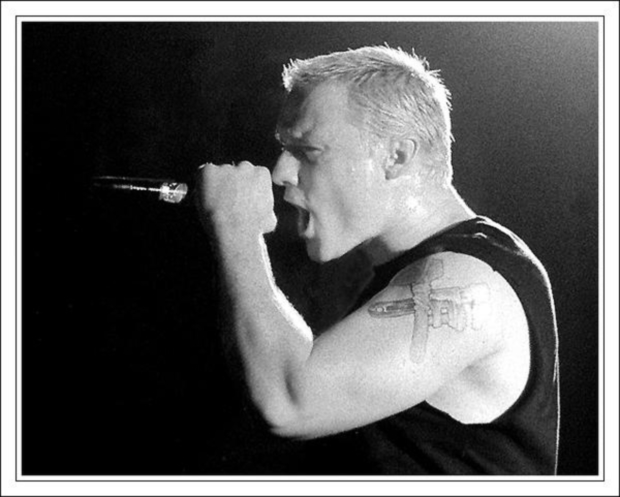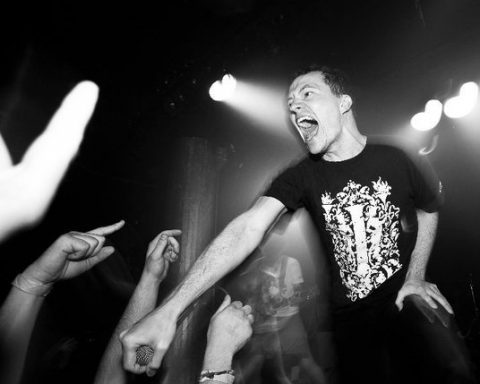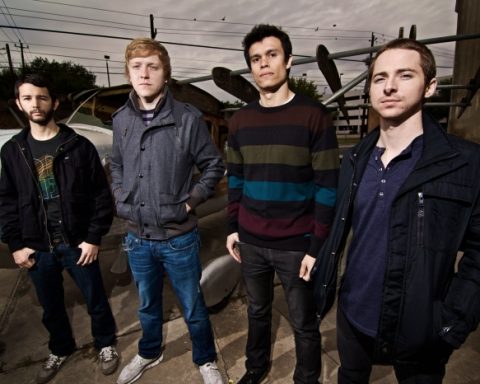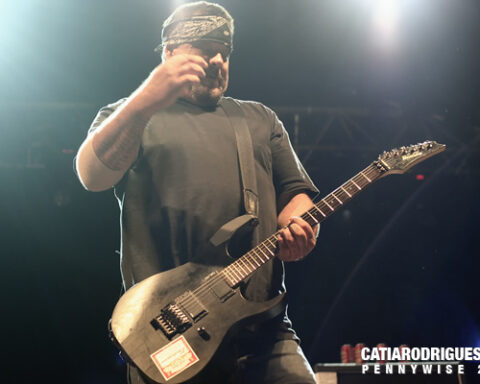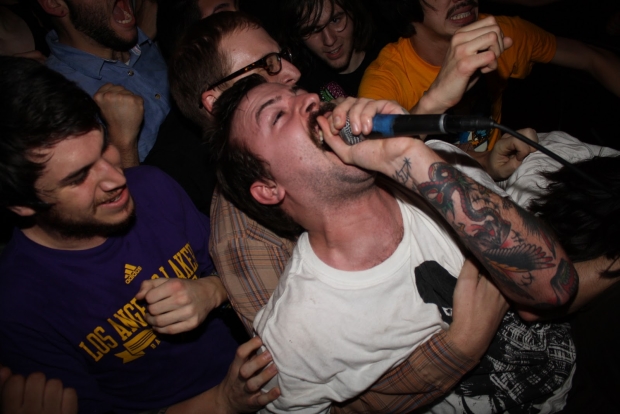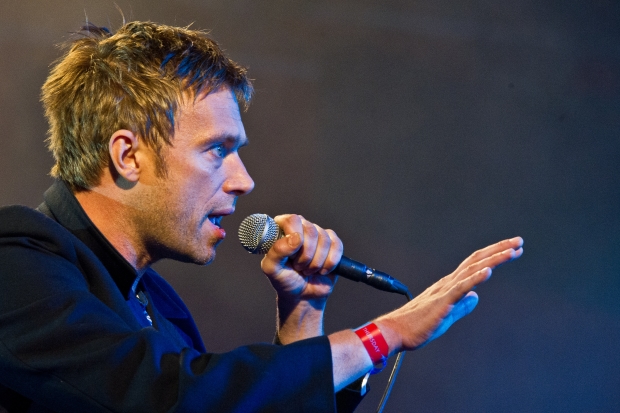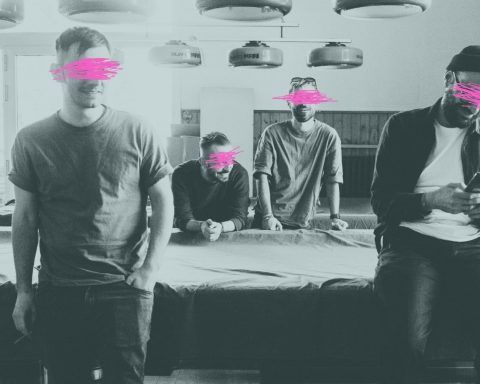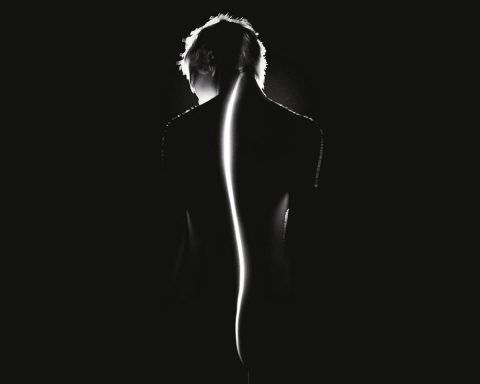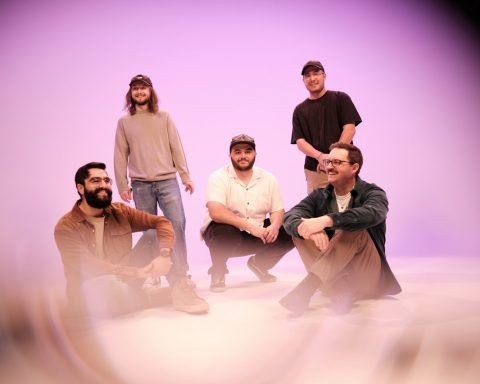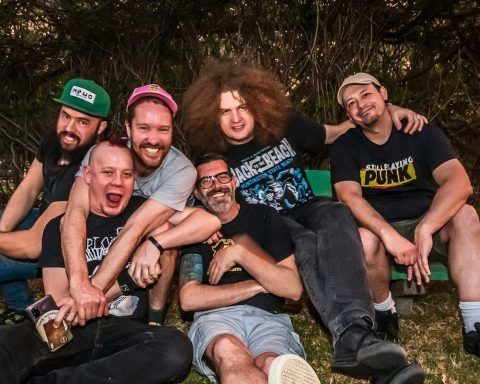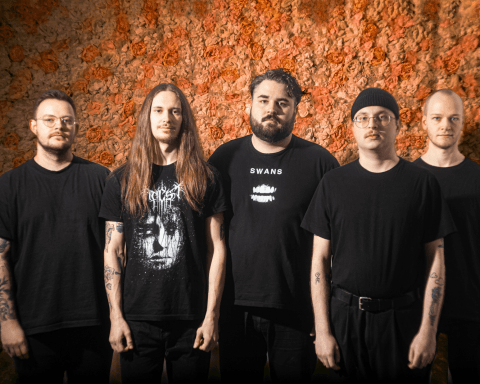Australian Hysteria recently conducted an interview with PENNYWISE and IGNITE singer Zoli Téglás.
Tell us about the wildlife rescues that you do.
I’ve been rescuing pelicans since 1989. I go out in a 1956 Ford F100 truck that was donated to me. We were donated a boat by [conservationist benefactor] Eddie Gill and we go out on the oceans and pretty much are handlers for these birds. We bait them into the boat and try to get all the hooks and lines off them. We try to put them back in the water because taking them into the rehab centre is stressful for them, but if they are too sick we will take them to a rehab centre. It’s been my calling my whole life.
What’s wrong with these pelicans? What is making them sick or injured?
People, because there’s no fish left in the oceans. Local waters are so over-fished that they’re coming closer and closer to people, and people are starting to beat them up. Like today, we rescued a pelican with broken wings—someone took a baseball bat or some sort of stick to it and they broke both its wings and its shoulders. In the autopsy it turned out to be a female with breeding plumage and full of eggs. This poor little animal was just totally destroyed by someone who got mad at it. It was maybe taking their bait. See, there’s no fish left in the ocean and the water’s so warm that they just get deeper and deeper. We’ve had thousands of pelicans die from starvation this year. The oceans are so over-fished that they can’t support pelicans and seals any more.
Is this happening worldwide, or is it a particular problem in more populated coastal areas like the States?
It’s worldwide. It’s actually not too bad here. If you go to Mexico or over in Asia, their local waters are totally devastated. I was on a Sea Shepherd boat two years ago for their bluefin tuna campaign and there was not one seabird; no fish in the ocean, there was nothing. It was like a desert. The ocean’s just getting sicker. I mean, there’s no way to compete against these huge multinational fishing crews. There’s no way the ocean will support itself anymore. We kill a billion sharks a year. How does that help? That’s going to kill the ecosystem and it will collapse on itself. It’s a sad thing to talk about, you know? You look out on the water and you can’t see what’s going on under the surface, but if you could see how these practices are done—in the middle of the night and in the middle of nowhere where they can’t be seen—it’s disgusting.
Tell me a bit about your involvement with the Sea Shepherd organisation.
I’ve been a member since 1989. I’m a volunteer and what I try to do is go out on stage and tell people about what the organisation does. See, when I’m on stage, I’m not rescuing pelicans and I feel guilty about it. So I feel like if I’m sharing the information then I’m doing a good thing. A heap of really gnarly people have become part of Sea Shepherd through Pennywise and my old band Ignite. Many of them are still there, even if they signed up in like, 1995. It’s pretty cool.
Historically punk rock has had a bit of a mindset of sticking it to corporate interests and what the ‘mainstream’ wants people to do. Is this still the case or has the message been lost over the years?
I think it’s been lost a little bit because a lot of hardcore punk rock seems to be more about the image than the message. Then again, you’ve got bands like Rise Against who are selling out soccer stadiums but also talking about veganism and Sea Shepherd and they don’t change their message at all. So there’s always a light at the end of the tunnel—there are some big bands now who are preaching about Sea Shepherd and conservation. The hardcore punk rock, to me, it’s always been an environmental, social and political movement, so I think it’s the best platform you can use to reach a populace of fans who are actually going to do something about it. I know at least 50 or 60 people who’ve signed up to Sea Shepherd thanks to a punk rock show.
Do you reckon people who live close to the ocean or nature generally have a greater appreciation of the animals they share their habitat with?
I live close to the most gorgeous coastline, but a lot of people go out there and throw trash off the side of their boats, kill animals, shoot sea lions … we have the most beautiful coastline and they just don’t give a crap about it. If you brought a kid from Afghanistan or any landlocked country, they would be so appreciative. Even someone from the mid-west, like Oklahoma. I think maybe people just take it for granted.
What draws you to Sea Shepherd as opposed to other groups?
A lot of organisations raise money so they can raise more money. They put maybe 20% or 30% of the fundraising to whatever their campaign is. I think around 90% of Sea Shepherd funds go straight to the boats. They talk the talk and walk the walk. They go out there and do what they said they would and put their lives on the line. They’re a real organisation where you can go out and work on the boats yourself. It’s not a make believe farce. They’re a really punk rock organisation.
You mentioned you went out on one of the boats yourself. What was it like?
It was great! Well, it was hard work. You get up at 8am and work your butt off. It’s hot, it’s dirty, it’s stinky … but rewarding.
What kinds of people did you meet there?
Oh, all kinds! From hippies to business people to athletes to musicians … a big hodgepodge of people who all care about the environment. It was really family oriented, very cool.
You’ve been doing this for well over 20 years now. What made you first want to get involved in activism and work like this?
Believe it or not, I read a book about Mother Theresa. She was just a little Albanian girl that had a vision that she needed to go work with the poor in India and help them through these horrible diseases like cholera. That really moved me. I’ve always thought of wild animals as the underdogs. They have no place to go if they’re hurt, everyone’s against them, everyone’s afraid of wild animals and so they just get killed off. They really have no voice and I wanted to be their voice, but really couldn’t figure out what I was good at. So I started working at this pelican rescue place with my brother and we ended up there for so long that we ended up being the head volunteers. I really feel for those animals. I really do, because they have it hard.
I was reading this book and there was a quote in there from a scientist who said that human’s are the worst feral animal on the planet. What do you reckon?
Absolutely. What do we do that ever has a positive affect on the environment? There’s this vole that lives in the root systems of these gigantic trees that grow in the Pacific Northwest of America. They eat a certain kind of moss, and through their droppings that fertilises this tree. I mean, even with our poop we can’t fertilise anything! We’re just take, take, take. We’ll help ourselves, but we don’t do much for the environment around us.
ZOLI live:



